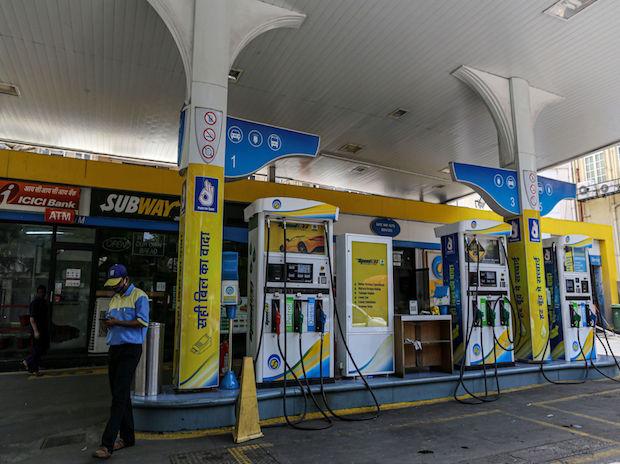Reliance-bp, Russia’s Nayara begin pricing petrol, diesel at market rates
India’s fuel retailers – Reliance BP and Russia’s Rosneft-backed Nayara Energy – have started pricing petrol and diesel at market prices for the first time in more than a year after lower global oil prices cut losses, sources said.
Reliance BP Mobility Ltd (RBML), a joint venture between Reliance Industries Limited and Britain’s BP, Nayara Energy and Shell, sold petrol and diesel at huge losses as it tried to match frozen prices below cost to dominant public sector retailers. The losses were despite pricing fuel at slightly higher rates than state-owned Indian Oil Corporation (IOC), Bharat Petroleum Corporation Ltd (BPCL) and Hindustan Petroleum Corporation Ltd (BPCL).
Three sources familiar with the matter said that the drop in global oil prices over the past six weeks has helped bring PSU-matching retail prices to a par with cost.
Nayara, the largest private fuel retailer owning more than 7 per cent of 86,855 petrol pumps in India, started pricing petrol and diesel at market rates sometime in March, selling 1,555 RBML petrol pumps of diesel at par of This month.
With oil prices down to $78 a barrel this week from a hike, RBML is offering a discount of 1 per liter on PSU rates, at select petrol pumps, they said, adding that the joint venture nonetheless continues to price gasoline at higher rates than PSU competition.
While falling global oil prices have revived hopes of a retail price review by the PSU, an official at the Oil Ministry stated that an immediate price cut is now likely because IOC, BPCL and HPCL have not yet fully compensated for the losses incurred when selling gasoline. And diesel is priced below cost last year.
The official said the three public sector retailers violated even petrol but there were some losses in diesel.
Sources said that diesel in all Jio-bp outlets is now on par with competitive PSU or market price.
However, Jio-bp – the brand under which RBML sells fuel – does not sell regular diesel but high performance diesel designed for Indian vehicles and roads to provide better fuel economy. The diesel engine is equipped with additives specifically developed for Indian roads and driving conditions to produce high performance, they said, adding that Jio-bp was selling premium diesel at prices equivalent to regular diesel at PSU pumps.
The state-owned IOC, BPCL and HPCL froze petrol and diesel prices for the first time for 137 days from early November 2021 when five states including Uttar Pradesh went to the polls. The second round of hiatus began on April 6, 2022 and is still ongoing even more than a year later.
Unable to match cost rates below PSUs, private retailers scaled back retail operations to reduce losses. RBML alone incurred Rs 700 crore loss per month at the peak while Rosneft-backed Russia’s Nayara Energy raised petrol and diesel prices by as much as Rs 3 per liter above and above PSU rates, to cover some of the losses.
Sources said that retailers from the private sector confirm that PSU oil marketing companies control more than 90 percent of the market and they set prices, leaving no room for them to fix the retail price of gasoline and diesel.
PSUs did not increase fuel prices in line with rising international crude prices which ultimately resulted in very low recalls (losses) for all fuel retailers since February 2022.
The non-refunds or the difference between cost and retail price were Rs 13.08 per liter for petrol and Rs 24.09 per liter for diesel at one time.
Private retailers have repeatedly highlighted losses incurred in fuel sales but the oil ministry dismissed them, saying Reliance exported diesel to Europe and other countries at very profitable rates but rationed supplies at its petrol pumps.
However, an industry official said that the Ministry of drawing inference is incorrect.
Reliance owns and operates two refineries, including one solely for export, at Jamnagar in Gujarat. BP has no equity stake in it.
RBML is an equal joint venture between Reliance Industries and BP with separate legal identities and separate financial books. RBML buys fuel at market price from Reliance as well as other oil companies to supply 1,555 petrol pumps.
“It’s like saying that the windfall that ONGC reaps from higher oil and gas prices should be used to help its subsidiary HPCL sell gasoline and diesel at highly subsidized prices,” he said.
Nayyara Power owns 6,386 petrol pumps in the country.
IOC, BPCL and HPCL own 78,501 out of 86,855 fuel pumps in the country.
Industry sources said that the market practices of PSU OMCs contradict the goal of promoting healthy competition and creating the right climate for investments in the fuel retail sector when the prices of petrol were liberalized in 2010 and diesel in 2014.
Seven new private retailers have obtained a fuel retail marketing license following the announcement of the fuel retail policy in 2019.
(Only the title and image for this report may have been reworked by the Business Standard staff; the rest of the content is generated automatically from a shared feed.)
